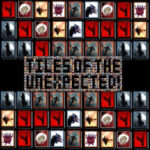Poppy Playtime Chapter 3: Deep Sleep pushes the horror boundaries further than ever before. Building on the cryptic lore and nightmarish visuals of its predecessors, this chapter plunges players into the darkest depths of the Playtime Co. facility. With gas-filled chambers, psychological dread, and a terrifying new villain—CatNap—Chapter 3 transforms the franchise from creepy to truly haunting.
This article takes a deep dive into all things Chapter 3, from its new gameplay mechanics and enemy AI to the expanding story, shocking revelations, and the return of Poppy herself.
1. A New Descent into Playtime Co.
Waking Up in the Dark
After the chaotic events of Chapter 2, players awaken in the depths of the Playcare facility, an underground orphanage once used by Playtime Co. for mysterious experiments. With hazy memories and distorted vision, the player begins a slow, terrifying crawl through a place built to suppress children’s minds.
The chapter opens with a jarring tone: not just horror—but hopelessness. The factory is no longer merely haunted; it's systematically designed to break you.
A Factory Within a Facility
Chapter 3 introduces:
-
Playcare (abandoned orphanage)
-
Sleep Testing Chambers
-
Airlocked Ventilation Zones
-
The Dream Hub
Each environment has its own personality and hidden threats, adding a fresh level of variety and danger.
2. The Introduction of CatNap: The Dream Reaper
A Villain Born in Silence
CatNap, the main antagonist of Chapter 3, is a large, humanoid feline toy that emits sleeping gas and glides through hallways with eerie grace. Unlike Mommy Long Legs or Huggy Wuggy, CatNap doesn’t chase you with brute force—instead, he stalks you with sleep-inducing tactics, hallucinations, and whispered voices.
Why CatNap Terrifies
What makes CatNap especially horrifying:
-
Gas that blurs vision and slows time
-
Appears inside hallucinations during puzzles
-
Teleports unexpectedly
-
Can follow players through previously safe zones
His AI is smarter, quieter, and significantly more unpredictable than any monster before.
3. New Mechanics: Sleep, Gas, and Shadows
The Gas System
Gas plays a huge role in gameplay:
-
Sleep gas leaks from vents and cracks
-
Prolonged exposure causes visual and audio distortion
-
Hallucinations become puzzles, enemies, or memory fragments
You must find gas masks, oxygen canisters, or shortcuts to avoid unconsciousness—because in Chapter 3, falling asleep might mean death.
Dreamstate Mode
A new gameplay layer: after inhaling too much gas, the player enters Dreamstate—a surreal dimension where:
-
Physics break
-
Walls melt
-
Voices from the past speak cryptically
Solving puzzles here reveals key lore, secrets, or safe escape paths.
4. Poppy Returns, But Changed
An Ally… Or a Manipulator?
Poppy returns in Chapter 3 with more dialogue, hints, and mystery. But she’s different—speaking in riddles, contradicting herself, and disappearing when you need her most.
At times, she:
-
Helps you open doors
-
Gives cryptic warnings
-
Leaves behind notes signed with different handwriting
Players are left questioning: Is Poppy trying to help—or using you?
Hidden Dialogues
Exploring deeper unlocks secret interactions with Poppy through:
-
Radio signals
-
Old intercom systems
-
Scribbled notes in child handwriting
Her story becomes more personal, more tragic—and more dangerous.
5. Environmental Storytelling and Lore Expansion
Playcare’s Horrific History
Chapter 3 finally confirms long-suspected fan theories:
-
Children were used in toy development experiments
-
Many never left Playcare
-
Failed "sleep tests" resulted in irreversible brain damage
The level design reinforces the horror:
-
Cribs covered in black mold
-
Sleep rooms with restraints
-
Broken music boxes playing lullabies out of tune
New VHS Tapes and Documents
The lore grows darker with:
-
Audio diaries from test children
-
Interviews with Playtime Co. doctors
-
Classified logs about CatNap's development
Every note is a breadcrumb in a trail toward ethical horror.
6. Advanced Puzzle Design
Gas-Integrated Challenges
Many puzzles now involve:
-
Timing actions before falling unconscious
-
Navigating fogged rooms with limited visibility
-
Finding oxygen valves or safe rooms while under pursuit
The tension rises as you juggle survival and logic under extreme pressure.
Layered Interactivity
Some puzzles occur in Dreamstate, meaning:
-
Answers exist only in hallucinations
-
Symbols shift in real-time
-
Failing may lead to being trapped in a dream loop
Chapter 3 rewards players who think beyond the screen.
7. Audio, Visuals, and Atmospheric Mastery
A Sensory Overload of Fear
The game pushes sensory limits with:
-
Whispering voices coming from vents
-
Rapid heartbeat audio when gas levels spike
-
Slow-motion distortion during fear spikes
Everything you hear is meant to mislead or stress you.
Next-Level Visual Effects
Graphical upgrades include:
-
Volumetric fog and particles
-
Real-time gas spreading through rooms
-
Lighting that adapts to oxygen levels
The deeper you go, the more the world warps—both visually and emotionally.
8. Fan Community, Theories, and Cultural Growth
Lore Theories Evolve
Fans have started mapping connections between:
-
The Prototype (Experiment 1006)
-
Poppy’s origins
-
Playcare’s "final subject"
New YouTube theories suggest CatNap may have once been a real child placed under deep sleep… forever.
Merch, Mods, and Media
Chapter 3 has:
-
Sparked custom fan mods and animation series
-
Expanded the Huggy/Poppy/CatNap universe
-
Inspired dark fan art and ARG games on social platforms
This is now more than a game—it’s a movement.
Conclusion: Sleep Is Not an Escape
Poppy Playtime Chapter 3 doesn’t just continue the story—it amplifies everything that made the series terrifying. With haunting visuals, smart mechanics, and a villain who doesn’t kill you—but puts you to sleep forever—Chapter 3 is a masterpiece of indie horror.
If you thought Huggy Wuggy and Mommy Long Legs were scary, CatNap is something else entirely. Welcome to your nightmare. Sweet dreams.





























